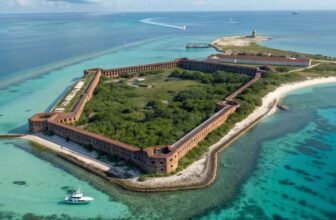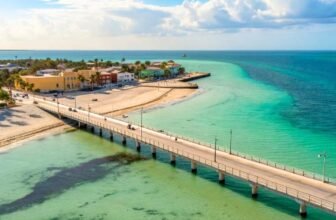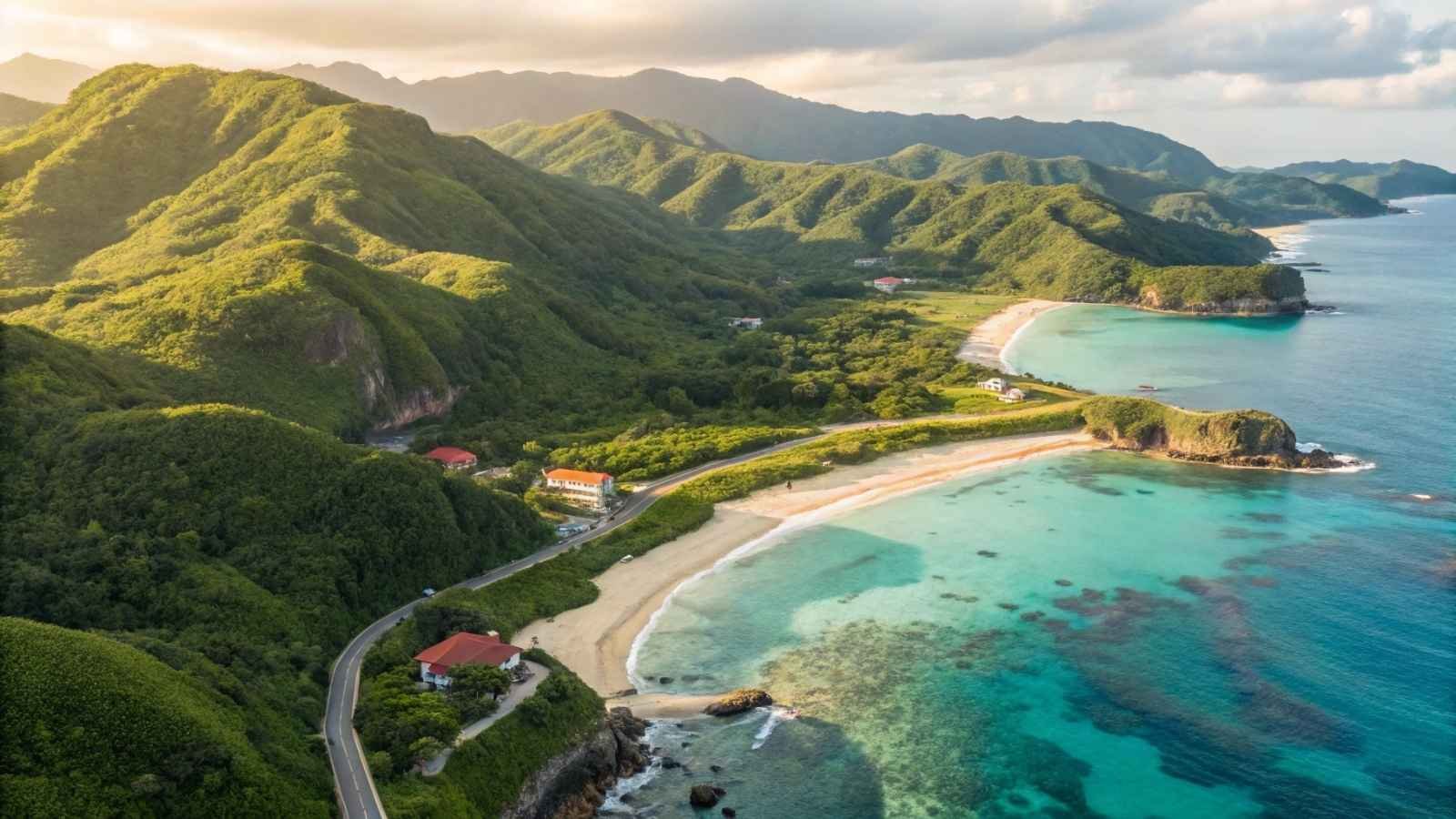
What if freedom weren’t tied to borders, but logged in from a beach, a balcony, or a boat? In 2025, a quiet revolution is happening on the world’s edges—tropical islands crafting digital identities that break us free from Big Tech’s grip and legacy systems.
These aren’t just tax havens or passport swaps; they’re launching pads for a life where your money, data, and business move as freely as you do. Whether you’re a founder, a freelancer, or just fed up with surveillance culture, these places are rewriting the rules—and you’ll want to see every single one of them.
1. Palau
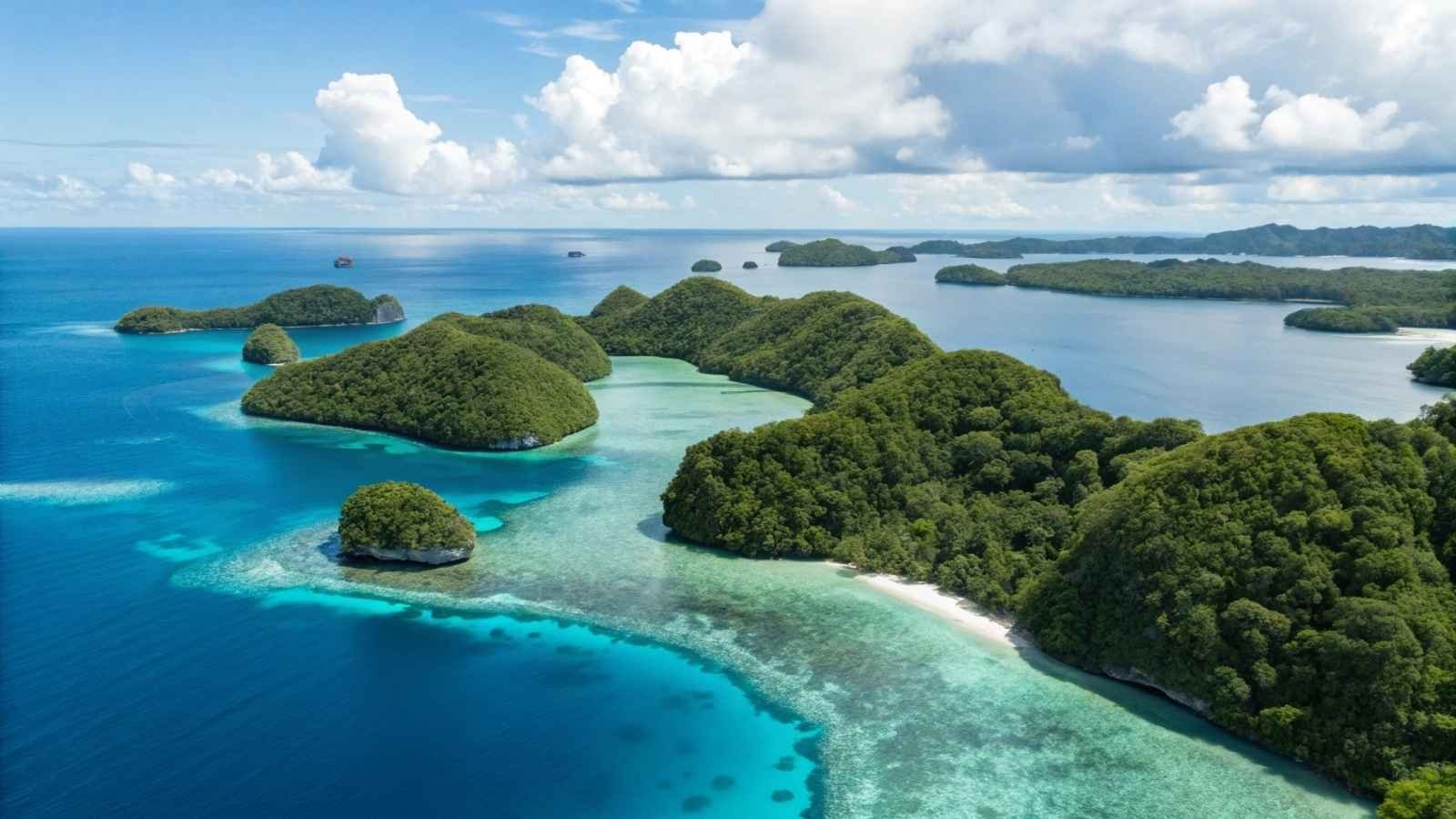
Palau has taken a bold lead in 2025 by evolving its digital residency program into a full-spectrum “Digital Citizenship” initiative. Initially launched in partnership with blockchain networks, Palau now offers a robust platform where digital citizens can access ID verification, offshore banking tools, and even digital asset registration—all without ever setting foot on the island.
Palau’s approach is impressively forward-thinking. Their program is government-backed but powered by decentralized infrastructure, meaning your data isn’t being passed around by Big Tech giants. It’s privacy-first, borderless, and built for those who want to opt out of the old systems without giving up legal compliance. You can also use a Palauan digital ID to open international bank accounts, register businesses, or even get access to tokenized investment opportunities.
One of the more underrated aspects? It’s personal. Their support team is small, responsive, and helpful. For once, bureaucracy doesn’t feel like a wall of silence.
Quick facts:
- Best months to visit: November to April (dry season)
- Languages: English and Palauan
- Currency: U.S. Dollar
- Tech Perks: NFT-based ID system, API integrations with fintech apps
- Digital Nomad-Friendly? Very—low taxes, no visa needed for 90 days for most nationalities
- Banking Options: Partnered with fintech banks in Asia and the Pacific
2. Vanuatu
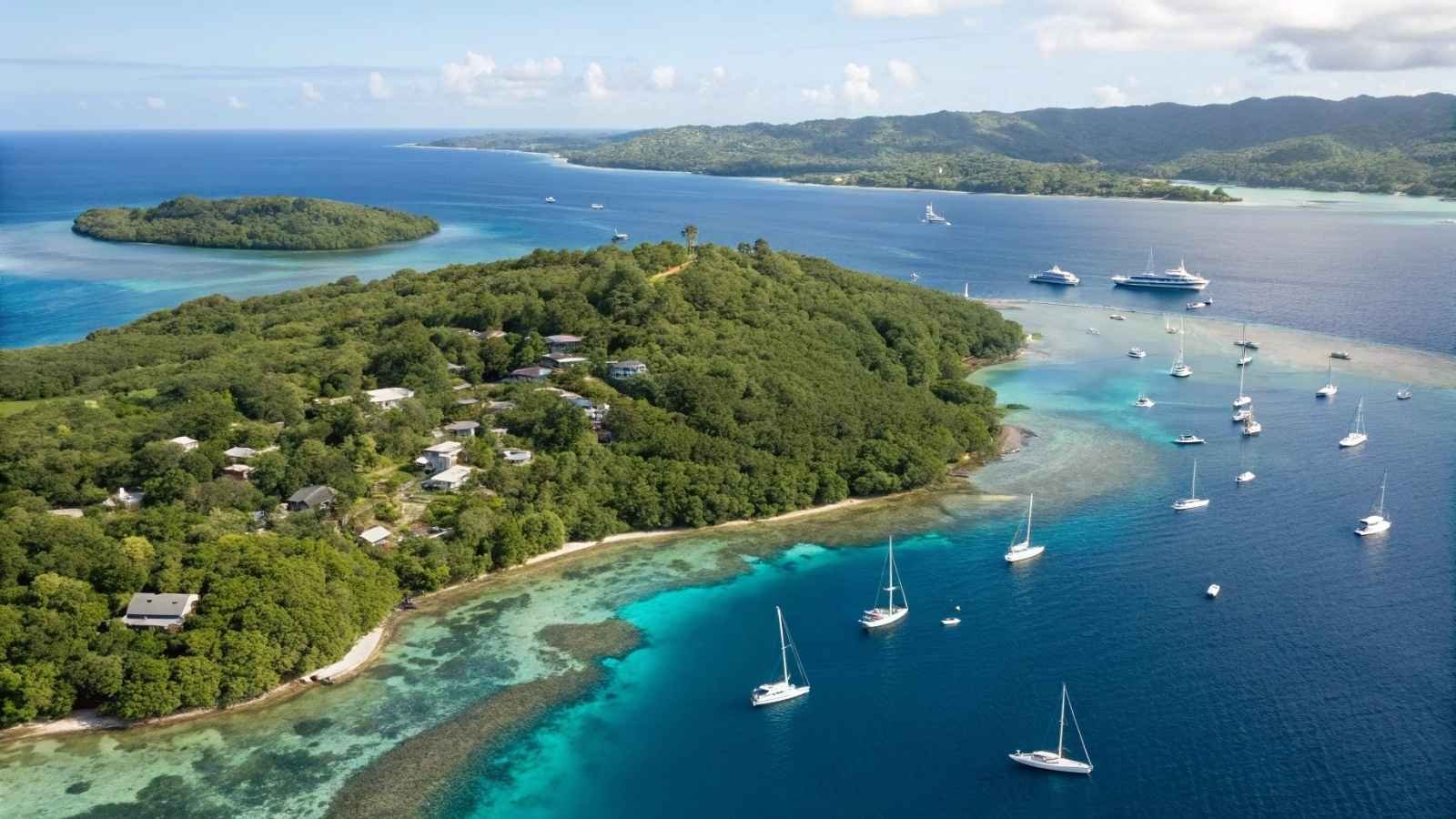
Vanuatu’s program is less about high-gloss branding and more about real-world utility. The country has quietly become a digital residency haven, offering full-stack financial privacy, alternative banking channels, and a simple path to citizenship through virtual entrepreneurship. This is not your average Caribbean passport mill—it’s a hands-on sovereign move to compete with outdated tax-heavy systems.
What makes Vanuatu’s offering standout is how it leans into offshore structures with modern compliance, sidestepping Big Tech surveillance but still giving users legitimacy in global financial networks. Their program includes remote business registration, crypto-friendly banking, and a new blockchain land registry being piloted this year. That’s right—land deeds as NFTs. Wild.
One thing that keeps popping up in expat circles: how laid-back but efficient things are here. You won’t find a flashy portal with blinking lights, but the process works, and fast. If you’re looking for freedom with a healthy dash of tropical simplicity, this is the place.
Quick facts:
- Best months to visit: May to October (cooler, dry season)
- Languages: Bislama, English, French
- Currency: Vanuatu Vatu (VUV)
- Tech Perks: Land NFTs, blockchain business licenses
- Digital Nomad-Friendly? Yes, especially for founders and crypto professionals
- Banking Options: Private international banks + regional digital banks
3. Saint Kitts and Nevis

Saint Kitts and Nevis is no stranger to second passports. Their new Digital Citizenship track is tailored to those who want to operate fully online businesses, protect personal data, and legally reduce their tax exposure, without sacrificing legitimacy.
The twin-island nation now allows you to set up everything remotely: ID, tax number, company, and even remote accountancy services. They’ve partnered with several blockchain ID platforms to enable secure verification that doesn’t loop through Silicon Valley servers. Their passport is still one of the most powerful among small nations, and digital citizens are allowed to apply for citizenship upgrades through economic contributions later on.
What’s most refreshing is how this place balances lifestyle with structure. The governance is tight enough to be credible, but not so tight that it strangles innovation.
Quick facts:
- Best months to visit: December to April (dry and breezy)
- Languages: English
- Currency: Eastern Caribbean Dollar (XCD)
- Tech Perks: Digital-only incorporation, ID-based crypto access
- Digital Nomad-Friendly? Yes—strong infrastructure, residency-light
- Banking Options: Regional banks + crypto-friendly services
4. Antigua and Barbuda
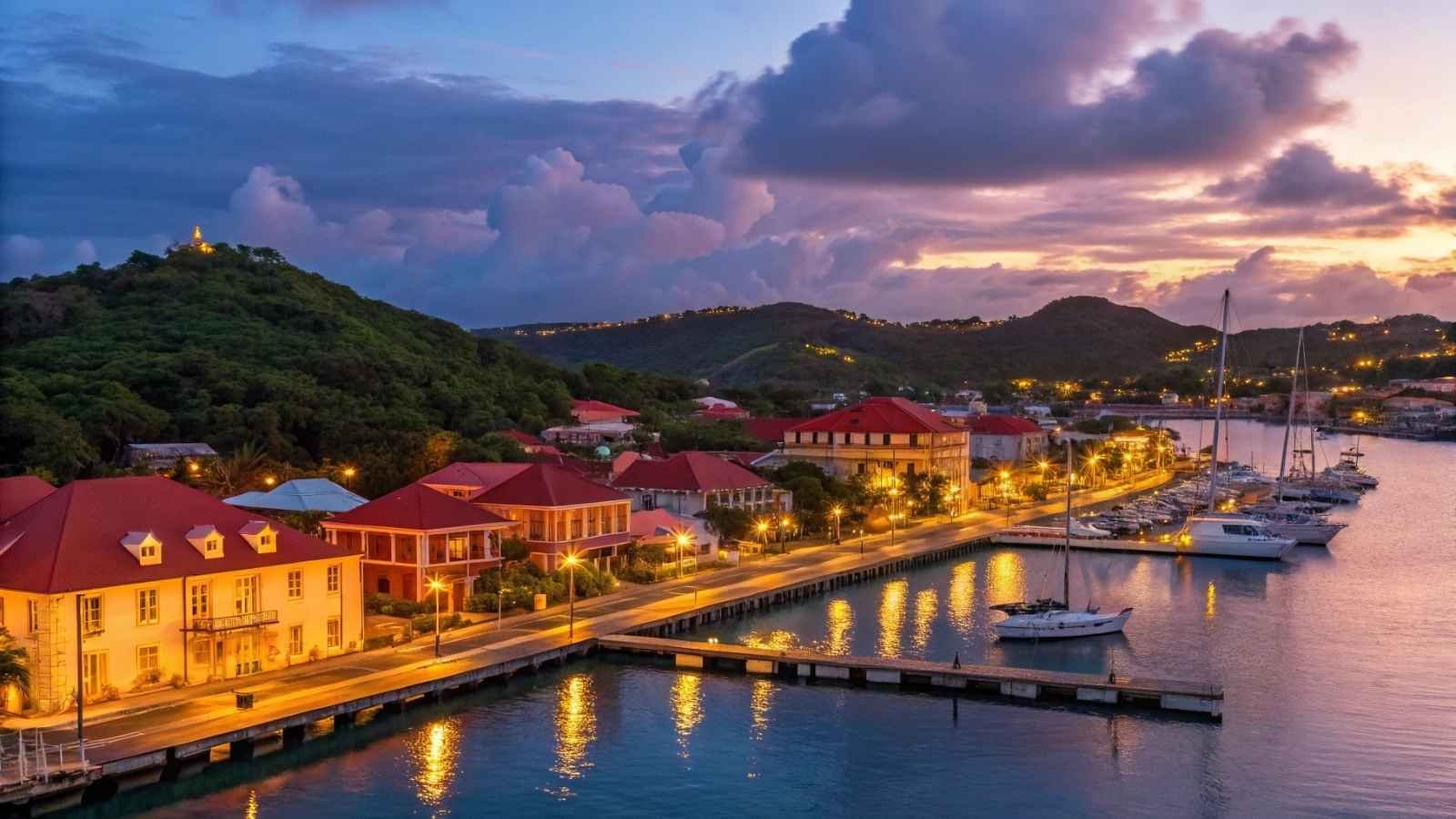
Antigua and Barbuda has one of the most versatile digital citizenship programs of 2025, offering tiered access depending on your needs—whether it’s data residency, business freedom, or just a remote base for a borderless lifestyle. What sets them apart is a direct partnership with privacy-first tech platforms, allowing you to opt out of typical ID verification systems.
Their approach is extremely founder- and investor-friendly. You can incorporate in under 48 hours, access bank accounts through API-enabled portals, and even use stablecoins for some transactions within the country. In a move that’s raised eyebrows in the financial press, they’ve started issuing government-backed crypto bonds for digital citizens—kind of like buying into the country’s future, literally.
While the system isn’t perfect, it feels more like a tech startup than a government department, which, for the right kind of person, is a good thing.
Quick facts:
- Best months to visit: December to May (sunny and mild)
- Languages: English
- Currency: Eastern Caribbean Dollar (XCD)
- Tech Perks: Government crypto bonds, tokenized licenses
- Digital Nomad-Friendly? Extremely tiered programs for freelancers, founders, and investors
- Banking Options: Fintech partnerships + stablecoin trials
5. Barbados
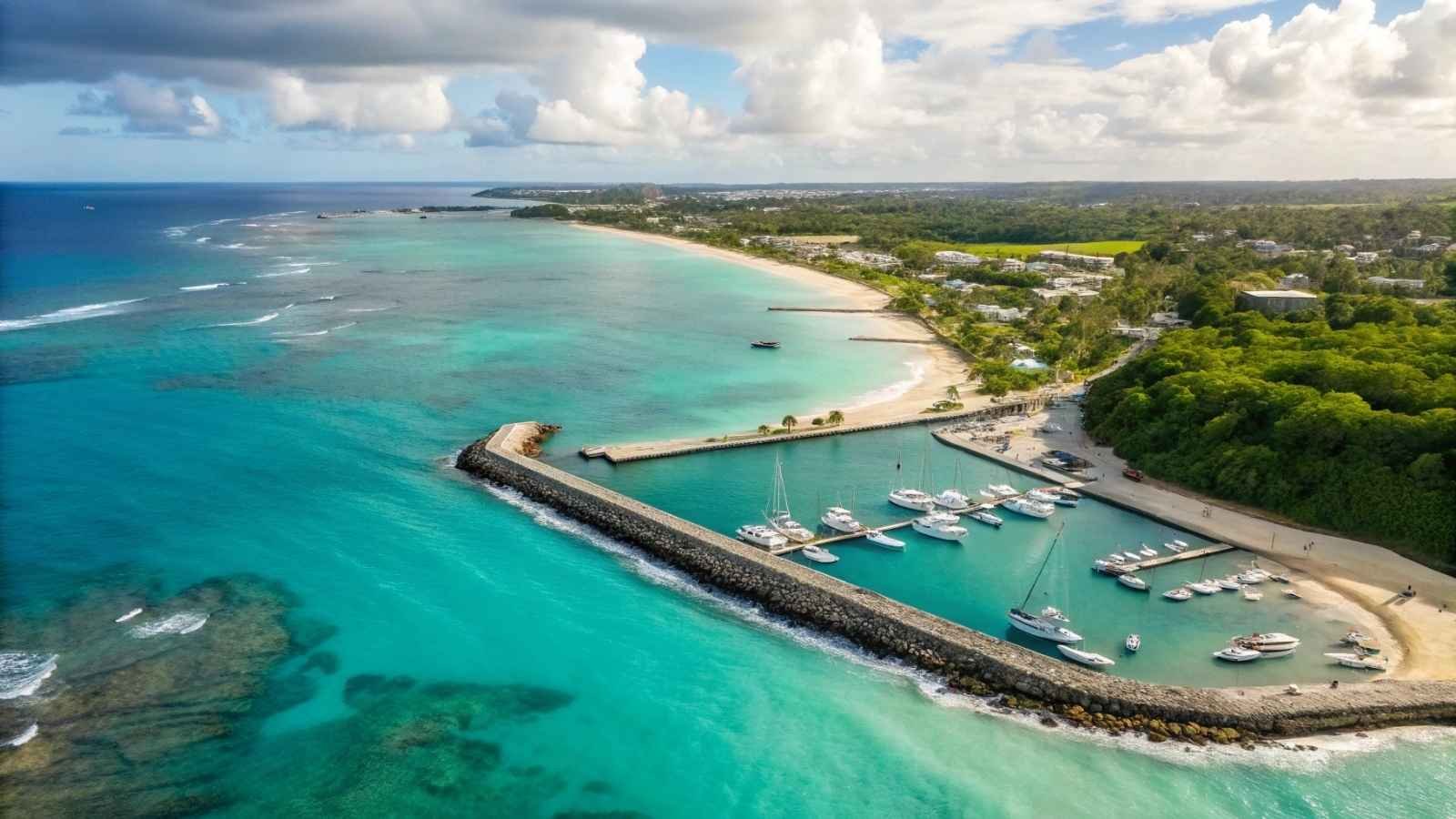
Barbados was early to the digital nomad trend with its Welcome Stamp program, but in 2025, they’ve upgraded the model into a Digital Citizenship+ tier, offering full-on data independence and legal fintech frameworks. It’s one of the most user-friendly and internationally recognized programs on the list.
What makes Barbados shine is its focus on legal transparency without sacrificing privacy. You get real protection—not just a flashy crypto tag—and their e-citizenship portal is integrated with tax and banking tools that are useful. It’s also one of the few island nations to partner with EU-compliant platforms while still keeping U.S. data requests at bay.
For those who want their freedom with a legal foundation built to last, this one’s a strong contender.
Quick facts:
- Best months to visit: December to June (sunny, breezy)
- Languages: English
- Currency: Barbadian Dollar (BBD)
- Tech Perks: EU-compliant digital ID, smart tax dashboard
- Digital Nomad-Friendly? One of the best, especially for families and long-term setups
- Banking Options: Traditional + integrated digital banking for e-citizens
6. Seychelles
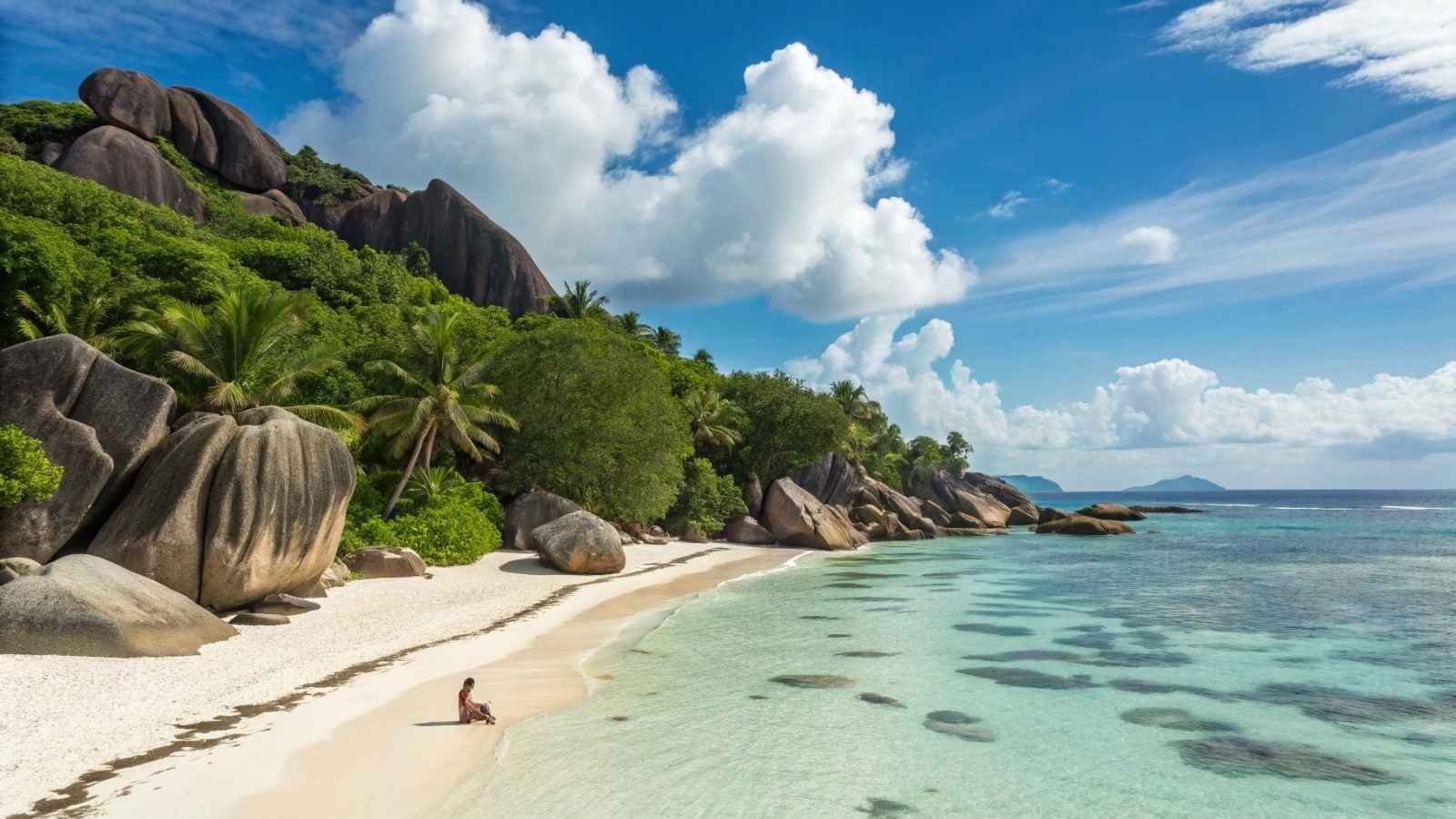
Tucked away in the Indian Ocean, Seychelles is reinventing its reputation from a palm-lined vacation hub to a global fintech outpost. In 2025, the country launched a modular digital citizenship program aimed squarely at entrepreneurs, privacy advocates, and those looking for a legal offshore anchor without the usual scrutiny.
Unlike more centralized offerings, Seychelles’ model is customizable. Want just a digital ID? Easy. Need full business registration with remote banking? Also an option. The island’s government has partnered with decentralized identity networks and a small group of crypto-native institutions to allow secure, pseudonymous identity layers backed by local law. It’s discreet, yes, but not shady—this is about sovereignty, not secrecy.
Also, the blend of tight compliance with flexible structures makes Seychelles a favorite for digital asset managers and DeFi founders who want to stay nimble.
Quick facts:
- Best months to visit: April, May, October, November (calm and less humid)
- Languages: Seychellois Creole, English, French
- Currency: Seychellois Rupee (SCR)
- Tech Perks: Modular e-citizenship, pseudonymous digital ID
- Digital Nomad-Friendly? Strong—minimal red tape, focused on founders
- Banking Options: Offshore accounts with regional crypto gateways
7. Dominica

Often overshadowed by its better-known Caribbean neighbors, Dominica has quietly emerged in 2025 with one of the most crypto-forward e-citizenship frameworks in the region. They’ve integrated a fully tokenized onboarding system where new digital citizens can manage their identity, taxes, and business credentials from a single dashboard—with multi-sig wallet verification included.
Dominica’s edge is in its simplicity and cost-effectiveness. The multi-tiered bureaucracies of some other programs this one is straightforward, affordable, and designed for lean operators. The government also supports small-scale DAOs (decentralized autonomous organizations), allowing founders to incorporate a DAO as a recognized legal entity.
And the vibe? Low-key, calm, and a touch old-school Caribbean—except with better Wi-Fi and smart contracts.
Quick facts:
- Best months to visit: February to May (dry and lush)
- Languages: English
- Currency: Eastern Caribbean Dollar (XCD)
- Tech Perks: DAO incorporation, tokenized onboarding, multi-sig verification
- Digital Nomad-Friendly? Ideal for small teams, solo builders, and crypto enthusiasts
- Banking Options: Local banks + crypto-compatible business wallets
8. Malta

While Malta isn’t the first place people think of when they hear “island,” it packs a heavyweight punch in the digital citizenship arena. Malta’s 2025 upgrade to its e-Residency framework brings robust financial infrastructure, EU compliance, and a new blockchain-native track for founders seeking legal shelter from overreaching surveillance.
The loser offshore models, Malta’s program offers serious regulatory legitimacy—ideal for those building regulated fintechs, launching tokenized funds, or managing cross-border businesses. They’ve even introduced a sandbox for decentralized finance platforms, making it one of the only islands with an EU-compatible DeFi program.
The culture here is equal parts Mediterranean charm and EU efficiency. If you’re playing the long game in tech or finance, this island is your runway.
Quick facts:
- Best months to visit: April to June, September to October (mild and scenic)
- Languages: Maltese, English
- Currency: Euro (EUR)
- Tech Perks: DeFi sandbox, EU-regulated e-residency, strong legal frameworks
- Digital Nomad-Friendly? Yes, especially for founders scaling legally
- Banking Options: Tier-1 European banks + compliant crypto integrations
9. Grenada

Grenada offers a hybrid citizenship model that in 2025 began attracting digital operators looking to mix lifestyle, freedom, and light regulatory touch. While still developing compared to other heavy-hitters, its “e-Nation Passport” program is one of the more experimental offerings—designed around a blockchain-based identity layer connected to tax and immigration portals.
Grenada doesn’t try to be everything to everyone. Instead, it offers a simple path to remote business registration, legal identity, and light infrastructure for managing crypto-based income. There’s also growing talk of a national DAO initiative, where digital citizens can vote on ecosystem projects and influence governance through staked tokens.
It’s scrappy, young, and a bit raw—but for the right people, that’s the draw.
Quick facts:
- Best months to visit: January to May (dry, warm, and breezy)
- Languages: English
- Currency: Eastern Caribbean Dollar (XCD)
- Tech Perks: e-Nation Passport, DAO voting initiative
- Digital Nomad-Friendly? Light but growing—better suited for early adopters
- Banking Options: Regional banks + US-tethered fintech options
10. Mauritius

Mauritius rounds out this list with an offering that’s as sleek as it is strategically located. Sitting at the crossroads of Africa and Asia, Mauritius has quietly rolled out a “Global Digital Nation” framework—a unique blend of residency, business incorporation, and fintech incubation designed for borderless operators.
Its strength lies in regulatory clarity, especially for those building in Web3 or fintech. The government offers accelerated licensing for digital asset ventures, and its digital ID platform is ISO-compliant and ready for international banking integrations. It’s also one of the few nations offering a remote legal counsel network built into the citizenship app.
Mauritius may not be loud about it, but it’s playing a long, smart game. If you want to scale from digital citizen to serious international player, this is fertile ground.
Quick facts:
- Best months to visit: May to December (cooler and drier)
- Languages: English, French, Mauritian Creole
- Currency: Mauritian Rupee (MUR)
- Tech Perks: ISO-compliant digital ID, fintech incubator access
- Digital Nomad-Friendly? Very well-suited for professionals and scaling startups
- Banking Options: Strong financial sector + international banking corridor


